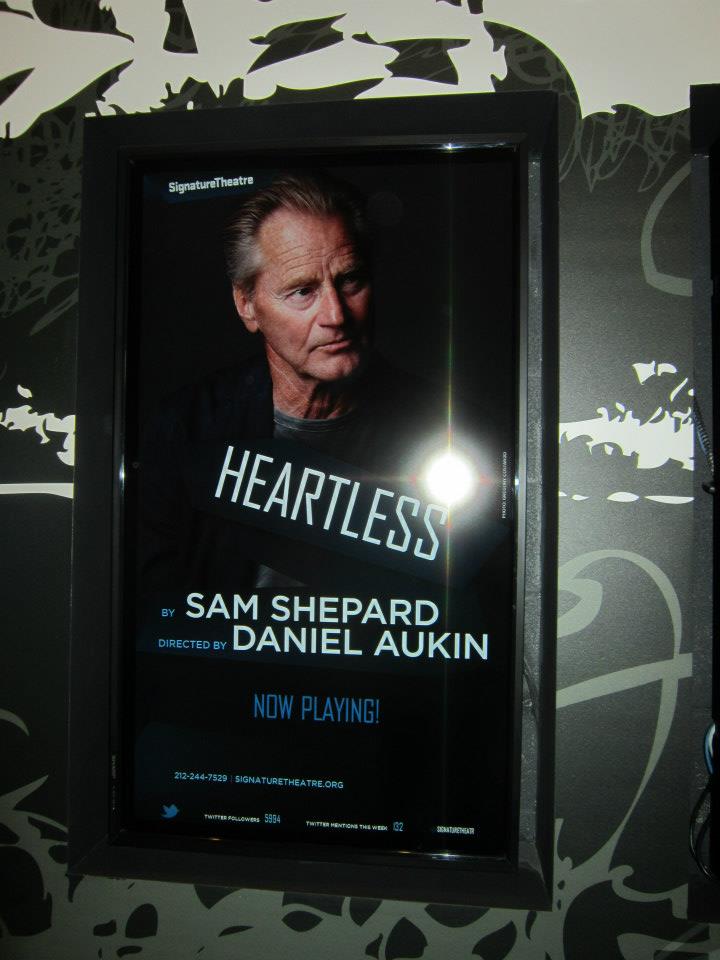In the mid-’80s I ventured to say in a published review of Sam Shepard’s True West that we were in a presence of a new dramatic genre, which I dubbed “the situation tragedy.” This notion was consistent, in retrospect, with a recognition on the part of Raymond Williams and others that circumstance had replaced action as a basis for tragedy, which is to say that a situation into which one is thrown, whether we call it social, or economic, or political, can itself constitute the tragic, particularly if it is one from which we cannot but with great difficulty escape or make our own, since it proceeds from the entire society rather than an individual crisis of action.
Another modern form based on situation, the television sit-com, is distinct from classical comedy because it depends upon a situation that replicates itself episodically despite the resolution of individual plotlines on a weekly basis. The characters persist in an oddball and vaguely uncomfortable configuration that is usually characterized by some sort of mismatch, the difficulties of which are never worked out. Put similarly mismatched persons (say the two brothers and the batty mother in True West) in a stage play and there is bound to be laughter (as there always is in Shepard) but without the episodic release of tension and obfuscation of hopelessness that a weekly comic outcome provides. And so we have the great frozen vignette at the end of True West, the two brothers locked in the situational irresolution of our national mythology, with its notions of maleness, individualism and the so-called “American Dream”.
HEARTLESS, the new Sam Shepard that I saw in a preview performance, is another take on the same structure, mismatched characters in a situation that is bound to give rise to laughter but the outcome of which will be tragic by virtue of its changelessness. If there is a change, say if one of the characters moves on via the timeless American metaphor of “the road”, it does not much alter the situation at hand, and in any case the road merely traverses the broader American circumstance, which is ever more obviously characterized by political stasis and unrealizable dreams. In HEARTLESS the situation consists of sisters at odds (one of whom owes her life to a terrible irony), a washed up professor of questionable credibility (he knows Cervantes but not Shakespeare even though there are no two literary figures who are so mutually illuminating), the professor’s dog (in a convincing offstage performance), and a mute nurse of Scandinavian stock who is stereotypically blonde and easy.
But there is something different today, in Shepard and in us, that injects into the potential comedy of the set-up a pre-awareness of the tragic dimension. When we first saw True West, it really could have turned out comically, hence the impact of the tragic vignette that came instead. But we know better now the depredations of the American Dream and the dark side of maleness and individualism that it flatters, and so the sense of being trapped is present from the start and the laughter is a release only in the moment, and it has a bitter edge. The frozen patterns of the play’s imagery fulfill what we expect rather than demonstrate the falseness of a naive anticipation. HEARTLESS is a remarkable play, and Daniel Aukin’s production-in-the making one of tragic poetry. I was especially glad to see Julianne Nicholson, ever honest and direct, more expressive in the wisp of a glance than most of us can be with an arsenal of gestures; and was much taken too by Betty Gilpin as the nurse, the delicacy of whose achievement exceeds the ostensible muteness with which we are at first presented.
NOTE: The term sit-trag, or situation tragedy, as a description of Shepard’s work, popped up as a “new term” in the academic literature a decade and a half or so after I first used it as a journalist, specifically in an essay by Toby Silverman Zinman that theorizes the “sit-trag” in terms of American religiosity.
For information on the Signature Theatre, click here.
